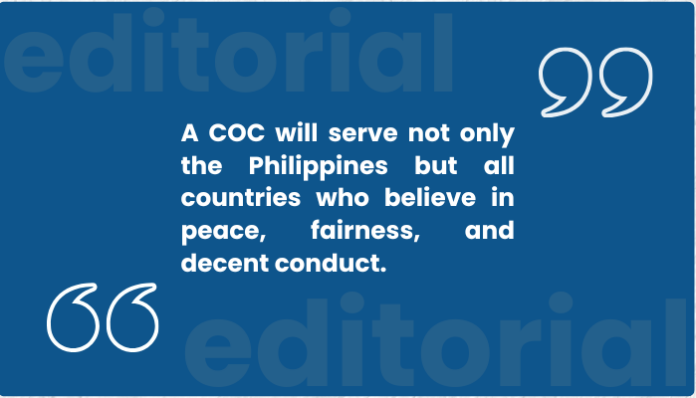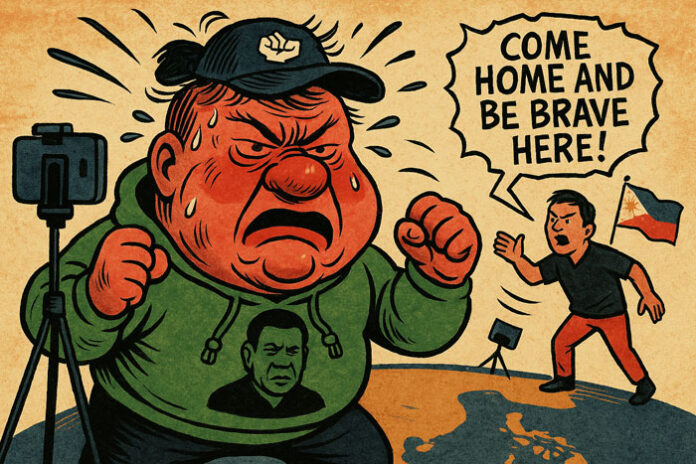BEFORE fellow Southeast Asian leaders at the ASEAN summit this week, President Ferdinand Marcos Jr. renewed the call for the adoption of a legally binding Code of Conduct for the South China Sea.
“This is to safeguard maritime rights, promote stability, and prevent miscalculations at sea,” he said.
During his speech in the summit in Kuala Lumpur, Mr. Marcos said a COC would prevent the escalation of conflict in the hotly contested South China Sea. In recent months, the Philippines saw an escalation in incidents where China has asserted its unfounded claims on our territory, in defiance of international law and a 2016 ruling by the Permanent Court of Arbitration saying its so-called nine-dash line had no basis.
In the most recent incident, China used water cannons against a Bureau of Fisheries and Aquatic Resources vessel in the West Philippine Sea. Other incidents involved the use of military-grade laser, sideswiping, even flying aircraft perilously close to our own. Our giant neighbor to the West has also used disinformation in asserting its wrongful claims.
To be sure, there is no guarantee that any one country would abide by a code of conduct even if it were passed. China’s actions despite the United Nations Convention on the Law of the Seas as well as the arbitral award show that anyone bold enough to defy international law could do so.
But there are consequences. Foremost, it would be perceived as a bully, an aberration to the established order forged by nations committed to peace, fairness, and stability.
A code would signify a universal commitment among signatories to act in a certain manner; those who act on the contrary would be perceived as reneging on its promise to behave respectably.
In response to such incursions, the Philippines has filed diplomatic protests against China. We do not expect big changes, if any, to result from these filings. At best, we are simply registering that we are not taking the provocative acts sitting down, whether or not the other party even acknowledges its excesses and misdeeds.
A code of conduct, on the other hand, sends a stronger signal that it is not only a single country that is enraged by these acts.
We understand that other members of the ASEAN have their own bilateral dealings with China, which may be affected, directly or indirectly, by their participation in such an act. But there is strength in numbers, and it would be a source of confidence and goodwill in the international community if countries band together to reject expansionist acts from any one country.
Ultimately, a COC will serve not only the Philippines but all countries who believe in peace, fairness, and decent conduct.








